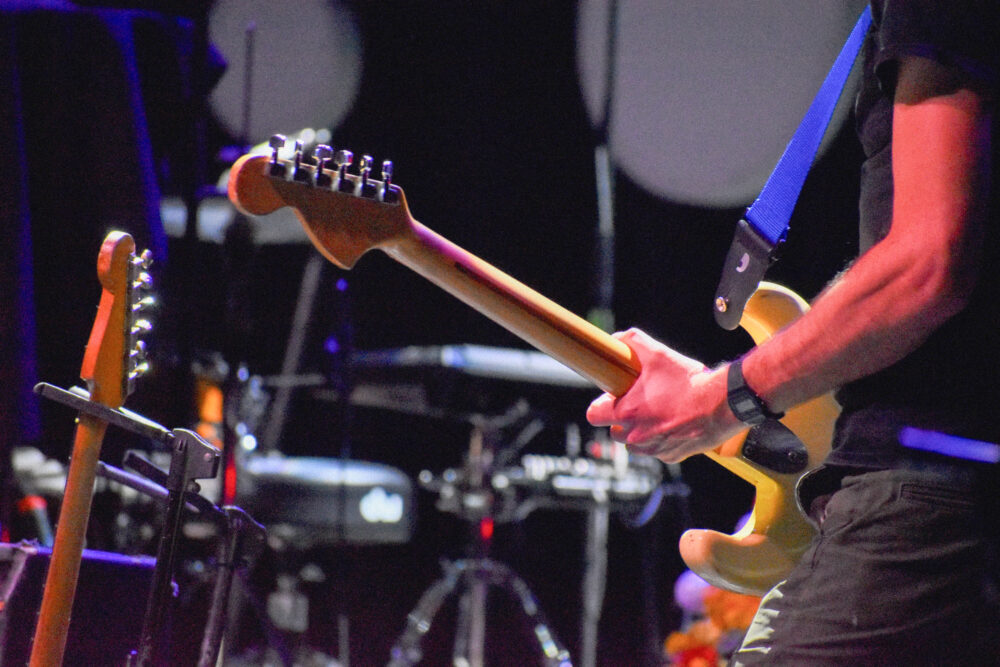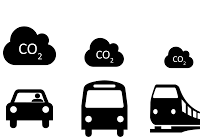Live music fosters connections between the musicians and their listeners in a powerful way, allowing the artist to spread their influence through a fun and memorable experience. However, recent concerts and music festivals have been criticized for their harmful carbon footprint and overall contribution to the climate crisis. Climate change has catastrophic global health impacts and is expected to cause 250,000 deaths per year by 2030. Modern artists have the ability to use their platforms to incite change in the music industry. After all, music and activism have historically gone hand in hand.
The Years Project estimates that U.S. concerts contribute over 115 million pounds of waste and 400,000 tons of carbon pollution. This staggering figure considers all that truly goes into putting on a live music event. The large amount of gas and energy needed to produce the lighting and sound, AC of the venue, the single–use food and drink containers, transport, as well as merchandise and other decor, to name a few.
However, there are new techniques taking center stage as society begins to recognize the issues with the current unsustainable model. Some of the latest technology being tested includes electricity producing dance floors and solar powered festival lighting. These high–tech alternatives can make a huge impact when supplemented with smaller–scale adjustments that go a long way for our planet. For instance, cutting down on single–use items and opting for recyclable options, having more plant–based options for food available to the audience, and providing accessible electric transportation alternatives are all ways a venue can offset its carbon footprint.
A handful of artists have also recognized this harmful pattern of live music resulting in increased carbon footprint, and have stepped up to call for change and advocate on behalf of the Earth. REVERB creates campaigns with artists who want to spread their music sustainably and highlights those who use their platform for their Green Music Movement. Some of these recent artists include Billie Eilish on her Happier than Ever Tour, The Lumineers’ Brightside World Tour, the Dave Matthews Band 2024 tour, and Tyler Childers’ Mule Pull ‘24 tour. These artists and hundreds more are going the extra mile to make their tours greener. Audiences have responded positively to this sustainability — one survey found that 72% of 350,000 live music fans in the US believe climate change is important, and 70% were not opposed to artists speaking out on the matter.
“72% of 350,000 live music fans in the US believe climate change is important, and 70% were not opposed to artists speaking out on the matter.”
What truly sets music apart from other art forms is that catchy lyrics or melodic lines are easy for audiences to remember and recite, causing messages to spread exceptionally quickly. This makes musical activism a popular way to spark societal movements. For example, Bob Marley performed musical anthems that cried for ideals of peace, love, and freedom. His songs inspired individuals to rally for equality, drawing international attention and creating a lasting social movement. Likewise, Lady Gaga crafts lyrics of her hit songs to call for LGBTQ+ equality and show her support for the community. The path is well paved for artists passionate about fighting the climate crisis.
The average person living in the United States spends just over four hours a day listening to audio form content. So if you out there are a music listener of any kind, I encourage you to support artists who are making the change to protect the environment while sharing their music with the world. One way you can get started is by checking out Musicians for Sustainability and signing their pledge which helps to spread awareness to large venues to implement three eco-friendly solutions. Another way is by checking to see if a concert you’ll be attending is a part of REVERB’s campaign, and make an effort to only support venues that have been “Greened.” Musicians are using their platforms to call for change and it’s up to listeners to support the ones who share the values for a continuation of live music for generations to come.






